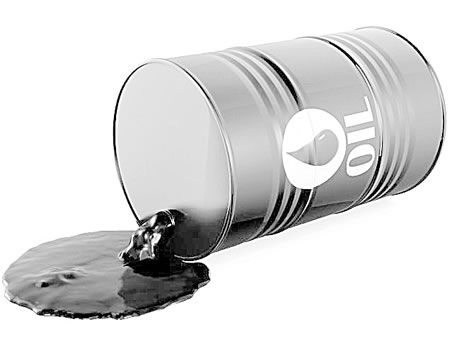THERE was anger across the land when former President Goodluck Jonathan raised the price of petrol in January 2012. In 2016, however, Nigerians quietly absorbed another increase under the new administration of President Muhammadu Buhari. This was largely attributed to the cold comfort given Nigerians by Buhari that his government had put an end to the endlessly elastic and corruption-ridden subsidy regime which had been the source of constant price hikes.As a result of upward movements in the volatile world crude oil market, therehave been steady increases in the prices of imported refined products.The result is that the N145.00 pump price no longer covers the cost of importation.
A government that had gleefully announced that the era of subsidy was over faced a credibility crisis as it found it difficult to pass on the increase to the people. The government-owned Nigerian National Petroleum Corporation (NNPC)has since been making up the shortfall under what it calls under-recovery. The corporation has been drawing from the Nigeria Liquefied Natural Gas Dividend Fund to cover the expenses and the senate has been questioning it for spending public funds without appropriation. It is hoped that the provision of N305 billion for subsidy in the 2019 budgetwill lay to rest the controversy. In a presentation at the Oloibiri Lecture Series in March last year, the Group Managing Director of the Nigerian National Petroleum Corporation (OPEC), Dr MaikantiBaru, was reported as saying that ‘’Nigeria is the only member of the Organisation of Petroleum Producing Countries (OPEC) that imports premium motor spirit and we are the largest importer of the product in the world… It is a shameful thing. It doesn’t make sense and that is what we are trying to address’’.
For decades, the energy and resources that should have been committed to the establishment of new refineries were concentrated on modalities for the importation and pricing of imported petroleum products. Fuel importationhas been consuming a substantial percentage of Nigeria’s foreign reserves in a country that should be a net exporter of the same products. The opacity and wilful mismanagement that characterise the oil business in Nigeria have made it impossible for the country to have the refining capacity to meet its own domestic requirements. The more the government spends on its problematic refineries the less has been the output. The NNPC that manages the refineries is widely known to be a cesspool of corruption. While non-oil producing countries have functional refineries that produce refined products for domestic use and export, Nigeria, a major producer, has relied on importation of the various products of crude oil for decades.Even when the product attracted higher prices than it ever did, the managers of the country’s affairs did not spare a thought for the idea of establishing new refineries and expanding the capacity of existing ones. This is why the country is subsidising the importation of what should be fetching it handsome profits.
The subsidy which was primarily intended to make life easier for the ordinary citizens turned out to be an opportunity for corrupt enrichment for the people in authority and those at critical points in the procurement and distribution chain. The combination of subsidy and corruptionhas expectedly led to aheavier financial burden on the government. Instead of frontally confronting the problem of corruption, successive administrations have been frequently increasing fuel price in the name of subsidy removal. The resultant high cost of petroleum products and lack of vital infrastructure like electricity have resulted in high cost of production, the collapse and relocation of industries, joblosses and growing unemployment.
In the last four decades the price of petrol has gone up from nine kobo to the present N145.00 because subsidy in Nigeria seems to have a limitless elasticity. Apart from the so-called stakeholders, there are in Nigeria analysts and ‘experts’ who see fuel subsidy as a wrong-headed policy as if governments in different parts of the world do not subsidise different products and services for the benefit of their citizens.There are Nigerians – a microscopic minority – who can afford to buy a litre of petrol for N1,000.00 because the resources of the country are largely concentrated in their hands. The ruling price of N145.00 per litre greatly contributes to the anguish of the vast majority struggling to make ends meet.
The constant increases in the prices of petroleum products have been among the factors responsible for the steady decline in the country’s economic fortune. Every significant price hike has been followed by an increase not only in the cost of production but also in the cost of transportation which is a basic input into all economic activities. This has, each time, resulted inan across-the-board inflation and reduced purchasing power and quality of life of the ordinary people. This is why the present administration should be steadfast in its stance that another upward adjustment in the price of petrol will be a heavy burden with which the common people should not be saddled. It is the ordinary people and not the privileged ones who have been suffering the resultant hardship from fuel price increases. The usual promise that savings from removed subsidy will be used to improve infrastructure and social services has never been fulfilled. If petrol subsidy is the only benefit the common man can get from Nigeria’s oil, let it be. Poverty would not have been Nigeria’s defining feature if the oil wealth has been put to use for the benefit of the majority. The wealth has been for a handful and the woes for the rest.
While it is wrong for the NNPC to spend money without parliamentary approval, it should not be a moot question that the organisation has acted in the interest of the common people. The alternative is another increase in fuel price and this would have made life more miserable for the hoi polloi in a country being ravaged by poverty. It is gratifying that the government in the current year’s appropriation bill has made provision for subsidy as the need will no longer arise for the NNPC to hide under the nomenclature of under-recovery. Known for its poor record in accountability, itis hoped that the NNPC will manage the new subsidy regime with less corruption.
- Olatoye, a veteran journalist, lives in Ibadan






